Hanoi (VNS/VNA) - The National Assembly (NA) Standing Committee has endorsed a proposal that non-public companies issuing bonds via private placement must maintain a debt-to-equity ratio of no more than five, including the value of the bonds to be issued.
The topic came up during the NA Standing Committee's 46th session this week in Hanoi, when committee members discussed feedback and revisions to a draft law amending and supplementing several provisions of the Law on Enterprises.
Finance Minister Nguyen Van Thang said that regarding beneficial ownership, the NA Standing Committee and lawmakers agreed to a broadly defined principle-based approach in the draft law, aligning it with the Law on Anti-Money Laundering.
The Government has adopted technical feedback from lawmakers, including provisions on responsibilities for collecting, storing and providing information on beneficial owners, as well as the criteria for identification and penalties for non-compliance, to be specified in Government regulations, according to the minister.
Addressing suggestions to set a specific deadline for enterprises to disclose beneficial ownership, Thang said that the revised draft stipulates: "For enterprises established before the law takes effect, the disclosure of beneficial ownership information (if any) shall be made concurrently when the enterprise submits the most recent registration change or notification thereof, or at the enterprise’s initiative."
He said that the draft does not impose a mandatory deadline for previously established companies to provide such information, to avoid creating a standalone administrative procedure that would increase the regulatory burden. This would go against the Government’s ongoing efforts to streamline administrative processes and reduce costs.
Furthermore, imposing a blanket deadline for all existing companies to disclose beneficial ownership is not considered an optimal solution, as such information can be produced upon request. In addition, about 35% of enterprises annually update their business registration, during which beneficial ownership information can be included.
A major point of discussion concerned the proposed requirement that non-public companies issuing private bonds must maintain a debt-to-equity ratio not exceeding five, including the bond value.
Minister Thang emphasised that this condition helps build issuers' financial capacity and reduce risks for businesses and investors. He said the mandatory threshold should not significantly affect companies’ ability to raise capital for business operations or growth.
Chairman of the NA's Committee for Economic and Financial Affairs Phan Van Mai noted that many NA deputies had raised concerns about including a fixed debt ratio in the law, warning that it may limit flexibility in regulatory responses. Similar provisions in other sectors are usually defined in sub-law regulations. He called for further clarification on the proposal’s alignment with Party Resolution 66-NQ/TW and Conclusion 119-KL/TW.
As a result, the committee proposed an alternative approach: allow the Government to set the debt-to-equity ratio for private bond issuance through regulations tailored to different industries, sectors and business compliance levels. NA Chairman Tran Thanh Man has previously said he supported the Government's stance on the private bond issuance requirements.
Minister Thang added that the Government held consultations with businesses and relevant agencies on this matter for over a year. He noted that international practices vary, with most countries applying a maximum debt-to-equity ratio between three to five times for unlisted corporate bond issuers.
He reiterated that the rule helps build financially sound and transparent companies, excluding businesses that exploit policy loopholes.
“In the current context, requiring a debt ratio cap is necessary. Only when the entire issuance process is fully digitised and transparent can we consider alternative regulatory approaches,” Thang said. He recommended that this provision be included in the law, rather than in a guiding decree, to ensure immediate implementation.
The amended Law on Enterprises is scheduled for a vote on June 17./.
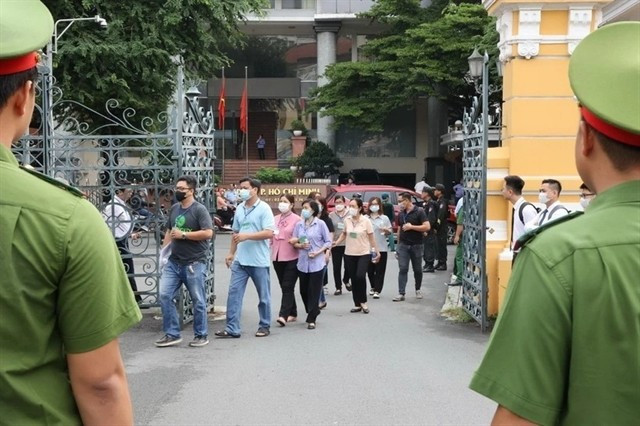
See more

VASEP forecasts pangasius exports to hit 2.3 billion USD this year
VASEP forecasts that pangasius export turnover could reach around 2.3 billion USD in 2026, supported by tightening global whitefish supplies and improving demand in several key markets.
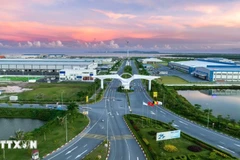
Hai Phong city targets 4.3 billion USD in FDI in 2026
Hai Phong’s investment appeal is underpinned by a rapidly expanding development space, including the Southern Coastal Economic Zone covering more than 20,000 hectares, a planned free trade zone, deep-water ports at Lach Huyen, and 12 industrial parks newly established in 2025.

Vietjet shifts domestic check-in at Tan Son Nhat from January 13
During the recent New Year 2026 holiday peak, Vietjet added 380 flights, equivalent to nearly 78,000 additional seats, on many key domestic routes linking Hanoi and Ho Chi Minh City with destinations such as Vinh, Thanh Hoa, Hai Phong, Da Nang, Phu Quoc, Nha Trang and Da Lat.

Capital sources expanded for sustainable growth
According to the State Bank of Vietnam (SBV), by the end of November 2025, outstanding green credit was estimated at around 750 trillion VND (28.55 billion USD), with an average growth rate exceeding that of overall credit in the economy.

Traceability emerges as protective shield for Vietnam’s exports
Traceability data are evolving into a critical layer of protection, helping exporters reduce tariff risks, shorten inspection times and strengthen proof of origin, thereby avoiding exclusion from formal distribution networks.

Retail market expands sharply, sustainability challenges persist
According to a report on recently released by the Ministry of Industry and Trade’s Agency for Domestic Market Surveillance and Development, the size of the market reached more than 7 quadrillion VND (about 266 billion USD) in 2025, up around 10% compared with 2024.

Vietnam eyes Israel as promising rice market under free trade deal
The Vietnam - Israel Free Trade Agreement (VIFTA), which took effect in late 2024, is poised to provide a fresh boost to agricultural exports, with rice at the forefront.

Resolution 79: State economy to lead growth
Resolution 79 is described as a “clear action declaration” by the Politburo, saying the state economy is not only responsible for maintaining macroeconomic stability, but must also become the force leading a new growth model that is green and sustainable.

Leveraging export advantages within RCEP region
In 2025, seafood exports to China alone exceeded 2.2 billion USD, up about 33% compared to 2024. Shipments to Japan fetched nearly 1.7 billion USD, a year-on-year increase of 14.6%, while those to the Republic of Korea and Australia grew by 9.6% and 3.2%, respectively.
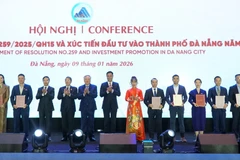
Da Nang continues targeted investment promotion approaches
According to Chairman of the Da Nang People’s Committee Pham Duc An, the city prioritises building sustainable economic ecosystems and focuses on key breakthrough sectors with strong spillover effects, including high technology and digital transformation, logistics, urban infrastructure, finance, processing and manufacturing industries, high-tech agriculture, and the pharmaceutical and medicinal herb industry.
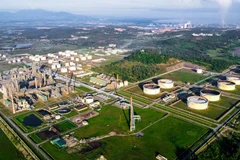
📝OP-ED: Resolution 79 – Launchpad for national aspirations
Resolution 79 is not only about SOEs. At a deeper level, it is about how Vietnam reorganises its development drivers in a world that is changing at breakneck speed.
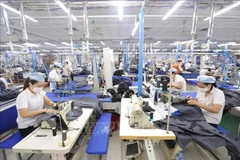
UOB raises Vietnam’s 2026 GDP growth forecast to 7.5%
In 2025, Vietnam’s GDP grew by 8%, beating UOB’s forecast of 7.7% but still falling short of the Government’s target of 8.3–8.5%, which would have needed an extraordinary boost in the final quarter.

Reference exchange rate up 4 VND on January 10
With the current trading band of +/- 5%, the ceiling rate applicable for commercial banks during the day is 26,388 VND/USD, and the floor rate 23,874 VND/USD.

Infrastructure key to unlocking tourism’s role in double-digit growth target
With transport links running smoothly, urban infrastructure upgraded and digital platforms built out in a more systematic way, tourism would move beyond a purely consumption-driven sector to become a deeper, more durable engine of growth.

Hyundai sales in Vietnam rise almost 23% in December
In 2025, sales reached 53,229 vehicles across the market, a result considered a testament to the efforts by TC Group, Hyundai Thanh Cong, and the entire Hyundai dealership network nationwide amidst a volatile market.

Da Nang approves plan key infrastructure developers at FTZ
The Da Nang FTZ is expected to contribute 17.9% to the city’s gross regional domestic product and create 127,000 jobs by 2040, with total investment needs estimated at 40 trillion VND (1.6 billion USD).

HCM City accelerates shift toward ecological urban agriculture
The city’s agricultural sector is undergoing a strong transformation, restructuring toward higher value-added and sustainable development. In recent years, the sector has maintained steady growth, with agricultural, forestry and fisheries output rising by an estimated 2.5% annually.
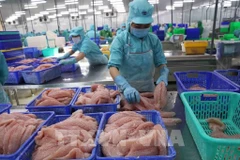
Vietnam records biggest trade surplus with Netherlands among European partners
Vietnam’s exports to the Netherlands totalled 13.5 billion USD last year, up 3.7% compared to 2024, while imports stood at 825 million USD, rising 5.2%.
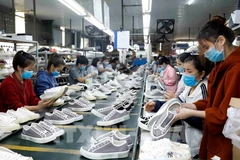
Footwear-leather industry seeks new drivers to sustain growth
Vietnam currently ranks third globally in footwear production, with around 1.4 billion pairs manufactured annually, behind China and India, and second in exports with approximately 1.3 billion pairs a year.
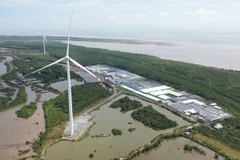
Sunpro - Ben Tre wind power plant becomes operational in Vinh Long
The plant features seven turbines and has a total investment of about 1.6 trillion VND (60.9 million USD), expected to generate 89.5 GWh per year, enough to supply electricity for about 27,000 households.







